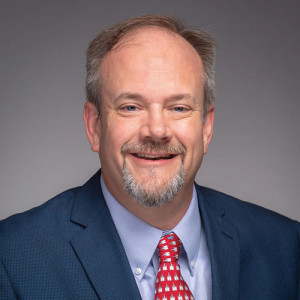Episodes

Monday Mar 25, 2019
Monday Mar 25, 2019
0:30 - McGrath Institute for Church Life: Science & Religion Initiative outreach to high school teachers to integrate science & faith
2:00 - Gulf Coast Faith Formation Conference (a good time to be away from Notre Dame)
3:00 - Summer seminars: Foundations Notre Dame, Foundations New Orleans, Capstone
4:00 - Foundations ND: lecture based, top scholars in specific disciplines, with workshops
6:00 - Foundations NO: experimental work and discussions
7:00 - Dialogue between science & theology teachers about their own specialties
8:00 - Capstone: topic-based theme & lecturers; special track for administrators; teaching practices
11:00 - Templeton Foundation study showing schools already trying to do this on their own
12:00 - The need to do this well and not engage in pseudoscience or gloss over tough questions
14:00 - ICL team making "housecalls" to individual schools
14:30 - Baglow textbook on science & faith
18:00 - Vast multiplication of interest from schools just since 2011
19:00 - Real motivations for believing faith is inconsistent with science: the need for hope [and, not made explicit, the appropriateness of hope]
20:00 - "I thought I was the only one"
21:00 - The historical and emotional impulse: rebellion against Christian hypocrisy
22:30 - Baglow makes the Fulton Sheen point: "I also hope THAT God doesn't exist!"
23:00 - The questions he wishes people would ask about God, meaning, science, etc.
24:00 - "What do you mean by 'God creates everything'"
25:00 - The nature of the discourse we encourage
26:30 - "I don't know"
27:00 - "When did science and religion enter into conflict?" - because they have not always been
28:20 - The true role of the university in integrating human wisdom
30:30 - Newman on evolution in the context of Development of Christian Doctrine

Friday Mar 22, 2019
CNAG: Money
Friday Mar 22, 2019
Friday Mar 22, 2019
Money is a fascinating topic to take up in this connection because doing so illuminates some serious, jagged fractures within both of our contemporary political camps of “conservative” and “progressive” thought, and indeed, within our own minds.
“Whatever may be said in praise of poverty, the fact remains that it is not possible to live a really complete or successful life unless one is rich.” – Wallace Wattles
“Hello? How gross is that [quote]?! It offended me to my hippie core, until I understood what it was really saying and that, erm, you kind of can’t —not if you want to fully express yourself, anyway… you have to let a lot go because it will absolutely go up your nose if you’re still working on your issues around it being OK to make money.” – Jen Sincero, talking about that quote and the book containing it
“Money is not the root of all evil!” – Cathy Heller (if not an absolute quote, extremely close)
“Those who want to get rich fall into temptation and a trap and into many foolish and harmful desires that plunge people into ruin and destruction. For the love of money is a root of all kinds of evil. Some people, eager for money, have wandered from the faith and pierced themselves with many griefs. But you, man of God, flee from all this, and pursue righteousness, godliness, faith, love, endurance and gentleness.” – Paul of Tarsus, 1 Tm 6:9-11
“Money, it’s a hit
Don’t give me that do-goody-good bullshit” – Pink Floyd
Money. Wealth. It unites people as diverse in their political thinking and way of life as Oprah, the Koch brothers, George Soros, El Chapo, Vlad Putin… and hatred of it, renunciation of it, or contempt for those who have it (important distinctions, admittedly) unites Francis of Assisi, Karl Marx, Mother Theresa, and as Jen Sincero notes, your general hippie, hipster, and mousy academic type.
People want money. They want various of the things you can exchange money to obtain (food, housing, pretty objects, fast objects, sexual favors…). Unsurprisingly, given that, they want money for the mere fact of having money, or rather, the emotions related to security and power that possessing money provides.
As far as practical advice goes, the right attitude toward money and wealth seems to me to require a lot of work on that nagging issue I identified a while back: we’re either bored with the golden mean, or it’s too complicated for us to think about two things at once.
Of course, to get by in modern society and do much of anything to help people, we need money. On the other hand, we all experience the temptation to spend money irresponsibly. We spend money on things that will not help others even in the indirect (and completely real) sense that we need to help ourselves in order to help others. We spend money on things that are actually destructive: alcohol, strip clubs, access to crappy TV shows that we know are eating up our lives and giving nothing back, Lexus SUVs, a fifth set of power tools. We exalt this money thing to the position of Higher Power and guiding light for our lives, piling up ever more of that security and power far past any point of diminishing returns. We spend time thinking about and managing this money to the exclusion of living a real human life.
Christianity warns us about all of that early and often. What we then seem to have done, here in the West, is bend part of ourselves back too far in the other direction and try to carry on with an unrealistic set of expectations about not being one of those bad rich people, yet wanting all the things that money can buy. If we want to be Mother Theresa, yet also drive Jen Sincero’s Audi, then yeah, we’re going to come into conflict with ourselves.
At this point, of course, the net widens…
CNAG is the Catholic-New Age Glossary… not backed by Webster’s or any other authority. These reflections are written by Paul, and they here on That’s So Second Millennium because they are an attempt to find the points ofharmony between different strands of psychology and spirituality as they are being explored and lived out in Western culture today.

Thursday Mar 21, 2019
Bonus Episode - Patricia Bellm: Bible interpretation
Thursday Mar 21, 2019
Thursday Mar 21, 2019
The Bible as an instrument of getting to tell people what to do
Flood geology and cramming one's ideas into a "literal" reading
Adam and the Genome

Wednesday Mar 20, 2019
Post Christian: Why Bother?
Wednesday Mar 20, 2019
Wednesday Mar 20, 2019
This is in part a follow-on to the last CNAG entry on the term “deserve.” There is definitely a tension between the universalist strain within the New Testament that has cropped up from time to time within the history of Christianity, and the opposite, or at least complementary strain that stresses the importance of spreading the message of Jesus Christ and convincing others to explicitly take up his teachings and his way of life.
The problem with the universalist view is, of course, one of practical psychology. If you can be all-or-nothing “saved” without needing to “accept Jesus Christ as your personal Lord and Savior,” or for that matter go through the instructional and ritual process of the catechumenate and be baptized, then why does it matter whether anybody spreads the gospel or not?
Obviously, I gave the game away with the term “all-or-nothing.” It may very well be, and I believe it is most likely, that many human beings with little or no explicit knowledge and no explicit allegiance to Jesus of Nazareth in this mortal lifetime nevertheless find themselves in His comforting embrace for eternity, because even outside that explicit structure, they ultimately cast in their lot with the good that God made known to them and repented of the evil. Yet that hardly makes it not worthwhile to do what we can to make Jesus known and revered.
First of all, if the reality is that every human being’s destiny is bound up with this man’s life and death, why would we not want to spread the word? The argument, “it’s true and I would want to know” surely suffices on its own.
Second, do you really think that there is no lasting value to doing more good in this life? Is it really the case that the best life is to enjoy as much as possible of this world’s pleasures, do a minimal amount of good for others, and just slide under the wire to make some minimal criterion for salvation (a deathbed conversion, etc.)? That is the stuff of social conformity.
I don’t know whether I can actually change anyone else’s fate by telling them about Jesus, the things I believe He has done for me, or the way Christianity makes the universe make more sense to me. I don’t know whether any of the help I have tried to give by visiting my lonely old greataunt or counseling poor pregnant women or anything else could have done that either. I don’t know if Mother Theresa, in a long life of prayer and caring for the needy, ever flipped anyone’s destiny from hell to heaven; nor do I know that any tyrant or abuser ever did the opposite.
Maybe the good and the evil that we do provide points of departure for other people to make their choices for or against goodness and God, but I have a hard time seeing how God would judge them for anything I did or failed to do.
Yet surely it is still worth while to spread the truth, and if the gospel is the truth, it is the best truth we can spread. I want to do as much good as I can. I don’t want to be mediocre, in time or in eternity.
The Post Christian meditations, written by Paul, address the larger question, “Why do people believe science and the Catholic, Christian faith are mutually contradictory?” They consider the background reasons why people in the modern West desire to punish the faith of their ancestors and deny it credibility, apart from any cogent reasons to reject its actual dogmas and teachings.

Monday Mar 18, 2019
Monday Mar 18, 2019
What do we want to do in this podcast?
Goals for the year
Values of experience, e.g. Mexico: solar ovens from recycled materials
Credit consulting, etc., for exploited women in Mexico
The little estate in Mexico
Back to credit cards & exploitation of ignorance
Responsibility of those to whom much is given
Bringing it around to science
Career and sacrifice and little deaths
Chris, the handicapped man at the ND Center for Social Justice
The ethics of "fixing" or preventing Chris from being the way he is
The lack of philosophic background and the intellectual amnesia of contemporary science
Philosophy of science and the disappointment of 20th century physics, but the culture goes on unaware
Science, fundamentally cannot replace faith
...this is where Patricia makes that claim that science is about control
Ethics of changing human beings, other elements of creation
Bill poses the relativism question again
Patricia responds that "you can control science"
Everyone confronts the same Reality, and we cannot control it, but we prefer the illusion that we can

Saturday Mar 16, 2019
Bonus Episode - Patricia Bellm: Miguel from Mexico
Saturday Mar 16, 2019
Saturday Mar 16, 2019
The blind man who could see more than his neighbors... asking Patricia about German reunification
The industries that used up his sight

Thursday Feb 28, 2019

Wednesday Feb 27, 2019
CNAG: Deserve, part 3
Wednesday Feb 27, 2019
Wednesday Feb 27, 2019
I believe I have laid out enough lemmas to proceed to my own solution to the issues surrounding the word "deserve":
- The word "deserve" is simply not an appropriate one for me, with my history of trauma and self-hatred on the one hand, and my need to have a literal and integrated understanding of concepts on the other, to use in regards to my relationship with Being Itself at all.
- God is Necessary and I am contingent. There is nothing a contingent being could ever do that could place a moral obligation upon the Necessary.
- God has chosen to love me and offer me grace. In fact, that was always the intention. Human beings run off of grace. I don't "deserve" it, but God wants to give it to me and knows that it is a good thing to give it to me. Nothing else is needed.
- Being aware that I am therefore taken care of (and I can note in passing that the very common contemporary phrase "you are enough" seems to be the equivalent to this concept, although "enough" probably deserves its own future CNAG entry), I can finally take the focus off my own wretchedness, guilt, neediness, and shame, and do something to love other people.
As a Catholic, of course, I believe this Jesus of Nazareth is, was, and always will be central to this relationship between myself and God whereby I receive the grace necessary to live in an actual human manner. This grace is offered to everyone, whether or not they ever heard of Jesus Christ or even whether they lived before his time; because the Son of God is eternal, any action of his affects the entire history of the universe.
The New Testament alludes to this in several places. The Catechism of the Catholic Church (para. 605) points some of these out:
"At the end of the parable of the lost sheep Jesus recalled that God's love excludes no one: 'So it is not the will of your Father who is in heaven that one of these little ones should perish.' He affirms that he came 'to give his life as a ransom for many'; this last term is not restrictive, but contrasts the whole of humanity with the unique person of the redeemer who hands himself over to save us."
But if your lens shrinks those down too far, you can miss this truth amid the many other references to the possibility of rejecting grace and carrying on into damnation. Interestingly, the CCC pulls some distillations of this teaching from two first millennium "semi-ecumenical" councils, the Council of Orange (529) and the Council of Quiercy (853). The English CCC quotes the latter as follows:
"'There is not, never has been, and never will be a single human being for whom Christ did not suffer.'"
He did not suffer because he wanted you to feel guilty about it. He suffered for you because he knew it would save you and give you the strength to do good for others.
CNAG is the Catholic-New Age Glossary... not backed by Webster's or any other authority. These meditations are here on That's So Second Millennium because they are an attempt to find maximum harmony between different strands of psychology and spirituality as they are being explored and lived out in Western culture today. It flows from a respect for people's reasons for doing what they do and thinking what they think.

Monday Feb 25, 2019
Monday Feb 25, 2019
0:00 - Science is materialist by method, but scientists need not and should not be materialist by philosophy
2:00 - The world must be real and intelligible for science to make sense
3:00 - And faith provides a philosophical basis that allows this to happen
3:30 - Students' testimony on faith and science
4:30 - Removing the faith/science obstacle is only one step on the road toward faith
5:00 - God vs. Godzilla
6:00 - The true God and His use of secondary causes
11:00 - Creation as carmen Dei (song of God; Bonaventure)
12:00 - vs. strepitus naturae
15:00 - Thought and spirit vs. matter
[This harks back to, e.g., the Ed Feser talk at the SCS conference. I personally think there is an enormous gap--bridgeable, but still to be bridged--between these arguments that the ability of the mind to generate and handle abstract concepts implies a non-material component to thought on the one hand, and the work of modern neuroscience to track the activity of neurons around the brain in specific patterns as we think.]
17:00 - Philosophical gaps in the picture of existence without God
18:00 - Infinite regress of causes, temporal/efficient causes and extra-temporal
19:00 - Postmoderns in general have a depressing view: a para-Christian morality without God; doctrinaire atheists live in an even more depressing paradigm of complete lack of meaning
21:00 - Basil & Pope Francis on creation
22:00 - Basil on the interpretation of the six days and other aspects of creation
23:00 - Guides on the tour of creation
25:00 - Symbolic language (numbers) in Scripture
27:00 - Scriptural mandate to tend creation
29:00 - Historic ginning up of the conflict between science and faith

Wednesday Feb 20, 2019
CNAG: Deserve, part 2
Wednesday Feb 20, 2019
Wednesday Feb 20, 2019
Last week I started to discuss this fraught word "deserve." I laid out the sharp contrast between the way the word is used in self-help circles and the way it's used in the New Testament.
As we'll discuss when we get to money, it's interesting to see how contemporary Western culture still carries concepts from Christianity, but has developed a drastic case of amnesia about where they came from, still less the moral and philosophical and theological framework in which they originally made sense and allowed one to live life. The process had to have begun the moment there were bodies of Christians large enough to be called communities. Once people are surrounded by others saying and doing things based on some common basis, the human tendency is to go along regardless of whether they understand why.
Interestingly, there is a lurid and terrifying story from the otherwise radically cheerful Acts of the Apostles about some of those precise people. The text leaves it implicit, but it's pretty clear that the reason Ananias and Sapphira died was not that they sold their property, and not that they gave some of the money to Peter, and not that they kept some of it for themselves, but that they were claiming and pretending that they were giving it all away, and therefore lying. The hypocrisy was the thing being punished.
In any case, cultures and political communities grew up in which official adherence to external Christian practices became the social norm and to some degree were legally mandated. Hypocrites, and partial hypocrites, multiplied apace. Partial hypocrites are particularly close to my heart, since as I was discussing last time, I am one of them, or at any rate I was. I took the message of the Christian Scriptures, ran it through my filter or distorted lens, and tried to live the parts I could see.
If, then, I try to let the message of both the entire Bible and the experiences I have had since I turned 31 affect me, I can see that my approach to the concept of "deserve" needed to be radically rethought.
There has to be a sense in which "Like the rest, we were by nature deserving of wrath" (Eph 2:4) must be true. This is too fundamental to Christianity to be set aside. If human beings "deserve to be happy" without Jesus, then His own teachings about Himself don't make sense.
The thing is, human beings are completely contingent. We come into existence, and prior to that, there is not even a being to talk about "deserving" anything. We exist because the laws that govern the universe permit it, and the specific series of physical causes that operated on this particular rocky planet made it possible for the first humans to come to exist, and then human history played out in such a way that all our ancestors mated, bore offspring, and we were conceived. That existence is a gift, and God could have chosen things to come out differently. There are countless possible moral and conscious beings that could have come to exist and didn't and never will, and it makes no sense to say that they "deserve" it and aren't getting it. On what basis could one make that claim?
Thus, it seems to me that getting caught up in the idea that I deserve anything may be a complete waste of time.
Here I think it makes sense to point out the false dichotomy between "deserve" and "don't deserve." "Don't deserve" is not a single option. Usually we use "don't deserve" to mean "you're guilty and you should not receive some good because of your guilt." However, it makes equally good sense to say "don't deserve" in the scenario that there is no particular connection between your status and whether or not you should receive or encounter something. In that sense, even if you reject the Christian claims and believe something else, of course no one deserves anything from God.
I see I will need at least a Part 3 to try to tie this all back together...
CNAG is the Catholic-New Age Glossary... not backed by Webster's or any other authority. These meditations are here on That's So Second Millennium because they are an attempt to find maximum harmony between different strands of psychology and spirituality as they are being explored and lived out in Western culture today. It flows from a respect for people's reasons for doing what they do and thinking what they think.

